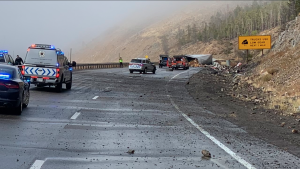Basalt Council hears public comment urging adoption of building electrification codes
Council made commitment in 2022 to enact all-electric residential building codes by 2025

Austin Colbert/The Aspen Times
Tuesday’s Basalt Town Council meeting public comment session went a little differently than usual, as pointed out by some of the councilors at the meeting. Several individuals from the valley spoke to urge the council to adopt building electrification requirements, which it had made commitments to adopt by 2025 in 2022.
“We have heard repeatedly over the last several months, as the topic of electrification has come up, concerns raised about the electric capacity of our distribution grid and our ability to access resources to keep the lights on,” said Bryan Hannegan, president and CEO of Holy Cross Energy. “I want to just state for the record for both now and in the future: We absolutely have the capacity to serve, period.”
CEO of the Aspen Center for Environmental Studies Chris Lane discussed his experience electrifying his own Basalt home, which he said was cost-effective. Amanda Poindexter, owner of Full Circle Construction in Glenwood Springs, also noted the cost-effectiveness of electrifying her own home.
There were no speakers in attendance on Tuesday who spoke against a possible new full-electric building code.
Following the public comments session, which often proceeds without response or with limited comment from the councilors, Mayor David Knight opened up a council discussion on the matter.
Councilor Hannah Berman said of the motion enacted in September 2022, “council had set in motion the intention to adopt an all-electric building code in 2025, and it’s gotten close to the end of 2025, so I think (a new code) for new residential (construction) makes a lot of sense. I certainly feel urgency to act on the climate.”
While the 2022 roadmap does not specifically define whether residential construction requirements would apply to old buildings, renovations, or only to new construction, Tuesday’s discussion specifically discussed a potential electricity code for new, “Type I” construction only, which refers to residential buildings.
The 2022 roadmap directs the town to prohibit natural gas lines but does not explicitly say “all-electric” in the text. Gas lines for stoves and heat are the primary non-electric appliance in many homes, however, meaning a prohibition on gas lines would be an “all-electric” requirement.
Councilors Berman and Angela Anderson as well as Mayor Knight were the most enthusiastic in their agreement with public comment and direction toward staff to bring additional details for a future work session.
Angele Dupre-Butchart noted that typically councilors have very limited response to public comment sessions, but in this case, there seemed to be momentum toward directing town of Basalt Staff to begin work on a potential ordinance that would enact the building codes.
While none of the other councilors explicitly disagreed with the idea of having staff bring more information for councilors to consider at a future work session, Councilors Dupre-Butchart and Ryan Slack expressed the most hesitance about enacting this type of policy. Dupre-Butchart in particular questioned the process with which this was brought to council.
“We’ve only heard from a very specific group of the public that has been targeted to come and speak at public comment on this, and only one of them lives in Basalt,” she said. “I think that it’s our responsibility, if we’re going to direct staff to spend the taxpayer of Basalt’s money, we should have the opportunity for more of our community to speak on this.”
Basalt attorney Jeffrey Conklin pointed out that this way of bringing items to the council’s attention isn’t entirely out of the ordinary.
“Council comment is an appropriate way to bring something up to try to get on a future agenda,” noted Conklin. “I think that’s kind of what we’re aiming towards here.”
There was originally a vote 4-2 in support of the measure at the 2022 meeting. Both Mayor Knight, who was not mayor at the time, and Councilor Slack were on council at the time, with Knight expressing support for the measure and Slack expressing dissent. Knight voted for the measure in 2022, with Slack voting against it at the time.
Public comment at the 2022 meeting saw three individuals who spoke in support of the measure that the town council ultimately adopted including, and two who spoke against it.
Those who spoke in support of the measure emphasized that the measure was a bold step forward for the town’s climate goals. Those who spoke against it noted that electrification can be cost-prohibitive for some people.
“I have a heat pump, and I have a heat pump water heater,” said Christine Greenberg, a researcher with the Southwest Energy Efficiency Project, in 2022. “I absolutely love them. They’re awesome. We save money on our energy bill.”
Greenberg noted that she doesn’t live in the Roaring Fork Valley but came to share some of her research from her work.
“Black Hills’ goal is to preserve our customers’ ability to choose the energy source that best fits their needs and their budget,” said public affairs manager at Black Hills Energy Jason Auslander in 2022. “We believe that banning natural gas without the proper technological support is short sighted, especially in cold, mountain climates like ours, and is going to add to the sky-high housing costs.”
In the coming months of 2025, Basalt staff will begin preparing more information for councilors to consider about a potential electrification measure.
Basalt Council hears public comment urging adoption of building electrification codes
Tuesday’s Basalt Town Council meeting public comment session went a little differently than usual, as pointed out by some of the councilors at the meeting. Several individuals from the valley spoke to urge the council to adopt building electrification requirements, which it had made commitments to adopt by 2025 in 2022.










